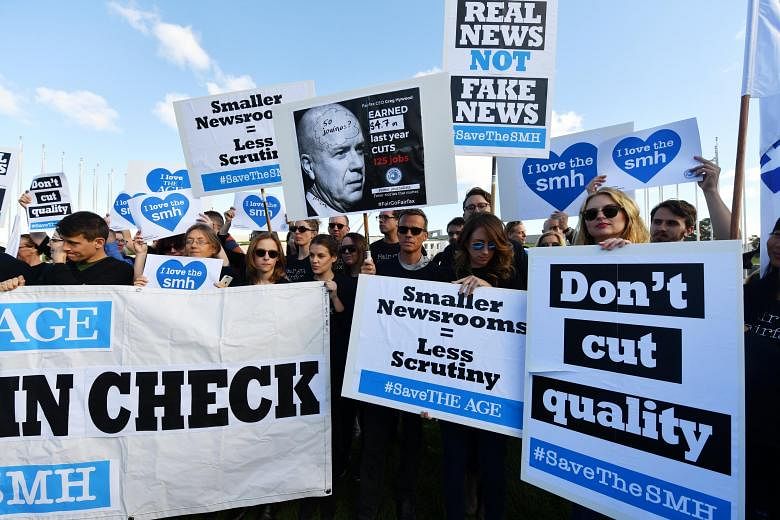When the market place of ideas fails, what happens? Traditional media need to shout louder to get attention, that's what.
Historian Timothy Garton Ash spoke about this at the St Gallen Symposium and we ran an excerpt of his speech here.
A functioning democracy, he argued, needs a credible, responsible, and free media - one that offers factual information and a range of views so citizens can make informed decisions.
But the internet is now polarising views and many netizens live and read within bubbles that don't expose them to others' views.
Meanwhile, the internet's penchant for encouraging extreme, anonymous content means even staid media producers now need to shout louder - and get more sensational - to compete. Result: declining quality of discussion, which is bad for democracies.
He said: "Very simply the Internet is destroying the business model of newspapers. For at least two centuries we have had a public good - news, the information we need for democracy - delivered by private means. A newspaper was a means of delivering the public good of news by private means."
That model worked for 200 years because people paid to get a newspaper and advertisers paid to advertise in them. Not anymore: "The Internet has just knocked away both these pillars. So the newspapers produce the information. Facebook and Google get the profit."
What happens to traditional media companies with their struggling finances?

"This has a very negative effect on the newspapers on which we have relied for our news. First of all, what do you do if you're drowning? Well, you wave and you shout. So all our newspapers are becoming more sensational, more partisan, more celebrity; more sensationalism, more 'if it bleeds, it leads, if it roars, it scores'. The desperate competition for the clickstream, clickbait. The amount of serious news, investigative journalism and foreign reporting is going down because that's expensive. This is a real problem for the journalism we need for democracy. What we have here is potentially a market failure in the marketplace of ideas."
Professor Ash suggested two remedies to help media producers continue to invest in the kind of information-gathering that's good for democracies. "I think public service media is part of the answer - foundations funding serious news, investigative reporting and foreign news are an important part of the answer because that means you don't have to go to the state for it."
The other remedy is to resort to the craft of journalism. Establishing facts is relatively easy. "The challenge for journalism is to get those facts and that evidence into the echo chambers of the populace and to get them to readers and viewers who don't particularly even want to hear them because they'd much rather have the warming solidarity of simplistic indignation."

In other words, journalists need to get good information and diverse viewpoints into the social media feeds, onto the smartphones, and tablets, of large swathes of the population who may otherwise never get to read those articles.
How do you do this? Shout louder? Sometimes, you need to get slightly creative.
This week, for example, we turned a serious commentary on intellectual property (IP) as a source of competitive advantage into a quiz. The IP quiz reached as many people on Facebook as the long, serious article did. I hope some readers who clicked through to the quiz learnt a few things about IP they would normally not have bothered to read about.
We distilled a long piece by Bilahari Kausikan analysing the limits of the United States' "military options" for North Korea into a listicle of four Hard Truths from a Hard-Nosed diplomat. If you're a bit hazy about the North Korea issue, I recommend reading that cheat sheet listicle. It's all about learning to shout above the din that is the messy, riotous, noisy, glorious internet.
Opinion Editor Chua Mui Hoong blogs on Saturdays on notable commentaries and issues.


